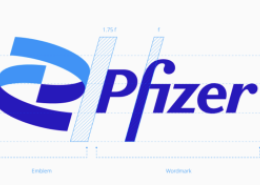Pfizer Discontinues Development of Two Phase 3 Compounds
Company to Redirect Resources to Projects Considered More Likely To Bring Value to Company and Patients
(BUSINESS WIRE)--Pfizer Inc announced today that, following a review of the development and commercial portfolios in the Primary Care Business Unit, it is terminating Phase 3 development programs for the investigational compounds esreboxetine for fibromyalgia and PD 332,334 for generalized anxiety disorder (GAD).
The decision to terminate these programs will enable the Business Unit to allocate additional resources to higher-potential development programs as part of its continuing effort to deliver greater value to patients and Pfizer shareholders.
After reviewing the results of the first Phase 3 study for PD 332,334 for the treatment of GAD and the existing data for esreboxetine for the treatment of fibromyalgia, along with current market dynamics, it was considered unlikely that either compound would provide meaningful benefit to patients beyond the current standard of care. Neither compound was terminated due to safety reasons.
“While confident in the safety of these compounds, we don’t believe that they provide significant benefit over other therapies,” said Pedro Lichtinger, President and General Manager, Pfizer’s Primary Care Business Unit.
Mr. Lichtinger continued, “In Primary Care, we continually review our portfolio to ensure we are developing medicines in areas of unmet need and have found significant potential opportunities to bring more value to patients and our company. For example, we are advancing the investigational compound tanezumab into areas of pain management beyond osteoarthritis and see potential opportunities for other investigational compounds in other areas of significant patient need, including Alzheimer’s disease and thrombosis. Our goal is to use our resources efficiently and effectively to continue to deliver medical innovations to the global health community.”
Pfizer will continue to pursue an indication for Lyrica (pregabalin) CV in the treatment of GAD,a chronic disorder characterized by persistent anxiety, exaggerated worry and tension that results in impairment of daily function.
Pfizer is a pioneer in the study of treatments for fibromyalgia, a condition of chronic widespread pain. In June 2007, Lyrica (pregabalin) CV became the first FDA-approved treatment for the management of fibromyalgia, and Pfizer continues to support research and education in this complex pain condition.
Pfizer is notifying all clinical trial investigators involved in studies of both esreboxetine and PD 332,334 to determine the best course of action for their patients. Patients participating in any of these studies should contact their clinical investigational site should they have any questions or concerns. --
About Pfizer Inc
Pfizer Inc, founded in 1849, is dedicated to better health and greater access to health care for people and their valued animals. Every day, over 80,000 colleagues in more than 150 countries work to discover, develop, manufacture and deliver quality, safe and effective prescription medicines to patients.
DISCLOSURE NOTICE: The information contained in this release is as of February 23, 2009. Pfizer assumes no obligation to update any forward-looking statements contained in this release as the result of new information or future events or developments.
This release contains forward-looking information about the product candidate tanezumab and about a potential additional indication for Lyrica, including their potential benefits, that involves substantial risks and uncertainties. Such risks and uncertainties include, among other things, the uncertainties inherent in research and development; decisions by regulatory authorities regarding whether and when to approve any drug applications that may be filed for tanezumab and for such additional indication for Lyrica as well as the decisions by regulatory authorities regarding labeling and other matters that could affect their availability or commercial potential; and competitive developments.
A further description of risks and uncertainties can be found in Pfizer’s Annual Report on Form 10-K for the fiscal year ended December 31, 2007 and in its reports on Form 10-Q and Form 8-K.
HD Biosciences Contact:
Angela Chen, 86-21-58558330 *102
[email protected]
OR
Pfizer Contacts:
Shreya Jani (U.S.), 212-733-4889
[email protected]
OR
Julien Dedman (Asia), +852-2287-9985
[email protected]







